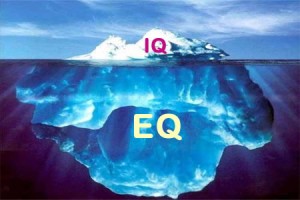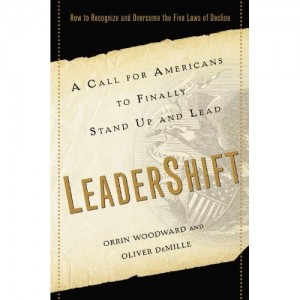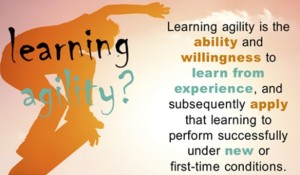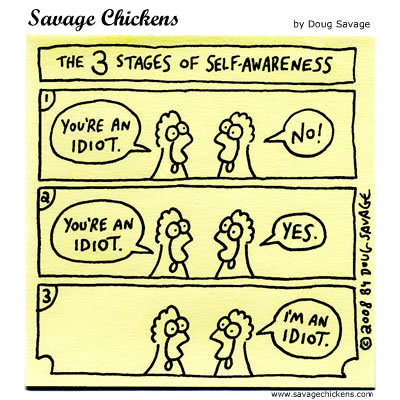
Emotional Intelligence
The Center for Creative Leadership (CCL) defines Emotional intelligence as a constellation of abilities that help leaders deal with their emotions and the emotions of others. The ability to maintain one’s poise in the midst of pressure-packed situations is essential for leadership. In a word, it’s difficult to lead intelligently when in the middle of losing one’s emotional control. Here are a few pointers for a person looking to improve in this area. First, before a person responds, he should pause long enough to ensure he is answering with his brain and not just his emotions. Second, since the person paused anyway, why not take a few second to pray/meditate on what is truly important in life. So many people respond without praying and needlessly damage relationships. Finally, after pausing and prayer, ponder over the correct leadership response in this situation.
In truth, I have violated all these principles (as everyone has); nonetheless, just knowing them and attempting to apply them will help a person improve rapidly. One of the key statements I have learned to say to myself when the emotion of the moment is attempting to take over is: Is it worth it? In other words, is what I am about to say really necessary and is it worth damaging the relationship if I am about to say something harsh. Indeed, Laurie and my marriage improved as much from what we didn’t say as from what we did say. Unfortunately, people tend to say the most hurtful things to those closest to them and maintain cordiality better with complete strangers. This can only change when people develop emotional intelligence.
The LIFE Business teaches extensively on Emotional Intelligence. In fact, yesterday, a doctorate level leadership graduate emailed me and signed up as a customer for the Launching a Leadership Revolution subscription (2 CDS, 1 DVD, and a book every month). This person asked to be on our subscription because, even though obtaining a doctorate level degree, she said she learned the best leadership principle from our community. Another great testimonial to the power of the LIFE products to make positive changes in a person’s life. LeaderShift, to be released on April 16th, has already climbed to the #8 best-selling book on Barnes and Nobles and it’s still over two months away from release. B&N has the book for sale at the lowest price offered online and free shipping for orders of just a couple of items.
Below is further information on EQ chapter from my Top 100 Leadership book RESOLVED: 13 Resolutions for LIFE.
Sincerely,
Orrin Woodward
The greatest athletes and leaders all have a poise about them that strengthens the resolve of all of those following the leader. No great achievement can be fulfilled without leaders of great attitude and great EQ. The good news is that EQ, like a muscle, can be developed by placing oneself in increasing pressure situations over time. Having a leader with high EQ is essential for others to learn from his or her poise on how to maintain composure even when others are losing theirs. At the start of leadership, everyone will fail in EQ in different situations, but over time, one learns to develop the internal fortitude to control one’s emotions, rather than have the emotions control them. Never let them see you sweat is a key principle in EQ based leadership. Teammates will rally behind the EQ of the leader, developing a confidence that the leader will see them through. Conversely, if the leader lacks EQ, the team will panic, each one attempting to save his own skin, leaving the team and the team’s goals in shambles. Attitude plus poise, plus strength of will, equals emotional intelligence quotient and every great leader must develop a high EQ. Remember, it’s not what happens to great leaders that counts as much as how great leaders handle what happens to them.
The story of Phineas Gage, as shared in the must read, Emotional Intelligence Quick Book, was instrumental in helping psychologist understand the workings of the mind. Here is a quick summary of his story. Gage was a supervisor of a railroad crew, considered one of the best, for punctual work and leadership skills. In an on the job accident, while tamping gunpowder into a blasting hole, the gunpowder exploded, sending a 43 inch long tamping iron of a full one and a quarter inches diameter through the frontal lobe of Gage’s brain. Amazingly, Gage lived to tell the story! It was a miracle that he lived to tell the story, but very quickly, others realized that he wasn’t the same man. Instead of his famed emotional control and leadership, Gage now lost his temper quickly, becoming emotionally unstable at the slightest provocation. He would curse like a sailor under stress, creating tension and chaos among his crew, responding to challenges radically different than his previous leadership style. He went from being one of the best of crew leaders to being unemployed, simply because of his lack of emotional intelligence. Gage, unlike us, had an excuse, he literally lacked the frontal lobe where reasoning took place. Meaning it was physically impossible for him to reason through his feelings, but the many EQ impaired people in life, do not have the same physical excuse. EQ is a simply a choice. A choice to slow down and think through the issues before reacting with feelings only. Yes, the senses will hit the ‘feeling’ part of the brain first, but with patience, one can wait for the senses to hit the ‘reasoning’ part also, responding with the whole brain in a high EQ style. Leaders refuse to react to the emotional stimulus only, but choose a response after feeling and thinking, in other words, with a high emotional intelligence quotient.
How many times have we witnessed people lose their cool, at work, at the airport, or during a sports contest, naming just a few? Is this type of behavior drawing people towards the potential leader or repelling them? No one enjoys spending time with a hot-head anymore than one enjoys walking on pins and needles. People build friendships with people who have predictable behaviors. Meaning, its hard to be friends with someone who will hug you one day, and hit you the next. People with low EQ, having not mastered their own emotions; therefore, they cannot lead themselves, let alone, lead others. All great victories in life begin with a victory over self. What happens when pressure builds in your life? How do you respond to the stress? If you don’t like the answers, welcome to the club, but the good news is that you can change. Before reacting to the stress emotionally, take a deep breath, forcing the mind to be still until one has time to reflect rationally, responding to the situation like a leader. It will take practice, but the results are well worth the investment. When a person lifts his EQ, it has the opposite effect from Phineas Gage. Gage lost his EQ, when his lost that portion of his brain, but we can gain EQ, by gaining the functionality of this portion of our brains through patient practice. It almost as if we gained an extra portion of brain matter, since it was practically unused. Learning to respond with EQ is one of the biggest changes in a person’s leadership journey, quickly noticeable to those following your leadership.











